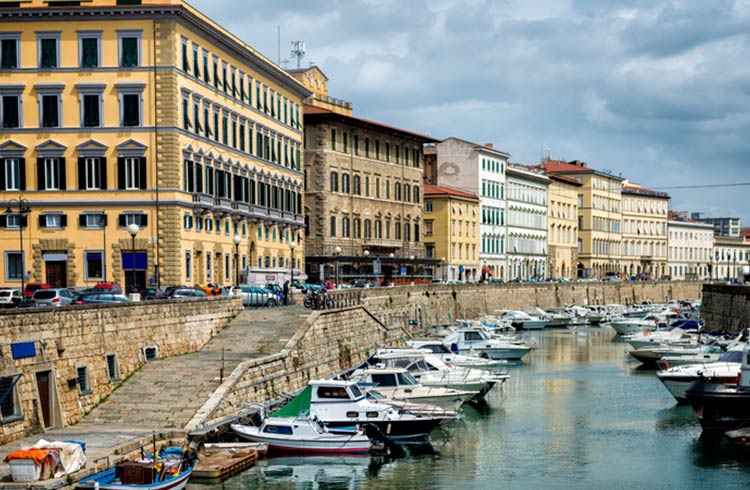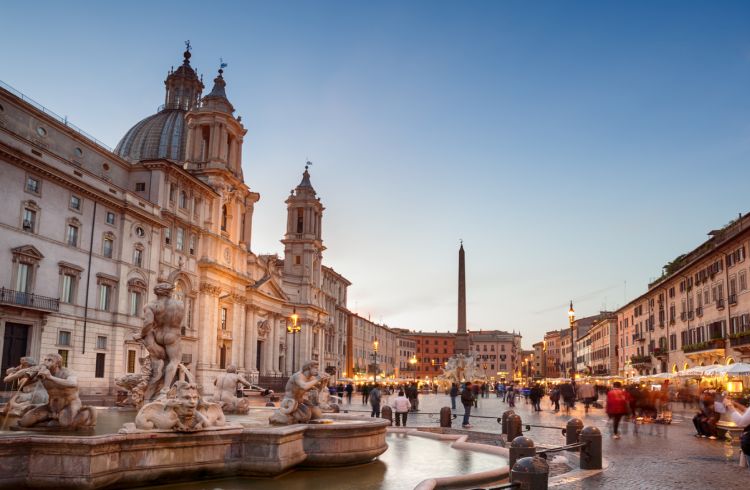Latest Travel Alerts and Warnings for Visitors to Italy
What are the issues affecting travelers in Italy? Read the latest travel warnings and alerts.
 Photo © iStock/Martin Wahlborg
Photo © iStock/Martin Wahlborg
Flooding in Venice – November 2019
Venice has recorded 6.1ft (1.87m) of water following days of heavy rain. These are the highest recorded water levels since 1966 when a whopping 6.3ft (1.94m) was recorded. The floods have caused millions of euros worth of damage, specifically to St Marks Basilica which has only been flooded six times in 900 years.
If you are traveling to Venice soon, stay up to date with local news and be aware bad weather is forecast for the coming days.
How to survive a flood
Do your research to know where to go if an emergency hits – take a quick look at the geography surrounding where you are staying. Where is high ground? Where will the water come in to create a bottleneck?
Keep up to date with news regarding the area you are staying in. Check websites, talk to locals, and pay attention to radio or TV. Staying aware of what is going on is important, even if it is for a few minutes a day.
If a flood hits and you are inside:
Firstly, it is vital that you keep aware of, and pay heed to, any evacuation notices delivered by emergency services. If you are told to leave, leave.
While there may be some situations that require evacuation, not everyone needs to leave their spot in the event of a flood, especially two-story hotels or apartments that end up simply water-logged downstairs. Although in apartment blocks, a word of caution – if the bottom levels become filled you could be marooned for days if your elevator system malfunctions.
If water creeps inside your accommodation, be very careful with electrical appliances. The safest idea is to switch off as many as you can – and obviously, don’t use your devices if you are standing in water.
If you are stuck inside and need to raise an alarm, hang a white sheet outside your window or on your roof so emergency services can spot you.
If you need to leave your accommodation
If circumstances reach a point where it is essential to leave where you are staying, there are a few things you should keep in mind:
- Wear study clothes, and strong shoes - the more water-resistant the better
- Take enough supplies that will last you for a few days, but leave behind any large pieces of luggage. If you get caught in a wave, you don’t want to have cumbersome gear weighing you down. Clothes can be replaced. You can’t
- Under no circumstances should you EVER drive through floodwaters. Engineering experts say that a human body in a stream of water is far safer, physics wise, than a car. Cars are filled with air, which makes them a bouncing, bobbing death machine
- Don’t swim or wade through floodwaters, even a slow-moving current is enough to knock you over, and the currents of floodwaters are extremely unpredictable. Floodwaters also contain debris traps – branches, pieces of metal, sewage, animals.
The best idea is to find the highest and most visible ground you possibly can, and stay put. You might get bored in the same place and want to move elsewhere, but if you have found the highest ground you possibly can, it’s the best you can do in a devastating flood.
Forest fires in Pisa - September 2018
A major wildfire burning in the forest area in central Tuscany region currently remains out of control, with authorities evacuating affected towns and surrounding areas.
Italian authorities have advised that for safety reasons, travel to the affected areas is to be avoided. Pisa's Galileo Galilei Airport (one of Italy's busiest) is currently closed, affecting thousands of passengers.
Check with your airline for further information regarding flights.
If you are traveling in the area, it's important that you listen to and follow all instructions from local authorities such as Italian Police and emergency services personnel. Failure to do so can result in you not being covered by travel insurance.
Tuscany Floods - September 2017
A storm that brought heavy rain to Tuscany and Rome has claimed several lives.
The Tuscan city of Livorno was worst hit, with 4 people killed and many homes and buildings inundated with water and mud. The rain was so intense in Rome that several subway stations were forced to close.
Visitors to the areas are advised that clean-up operations are continuing and disruption to transport and other services may last several days.
Before you buy a travel insurance policy, check your government travel warnings and health advice – there may be no travel insurance cover for locations with a government travel ban or health advice against travel.
Related articles
Simple and flexible travel insurance
You can buy at home or while traveling, and claim online from anywhere in the world. With 150+ adventure activities covered and 24/7 emergency assistance.
Get a quote
No Comments